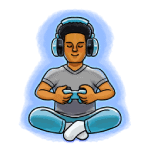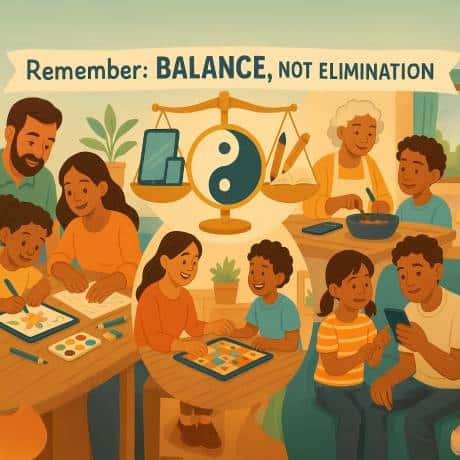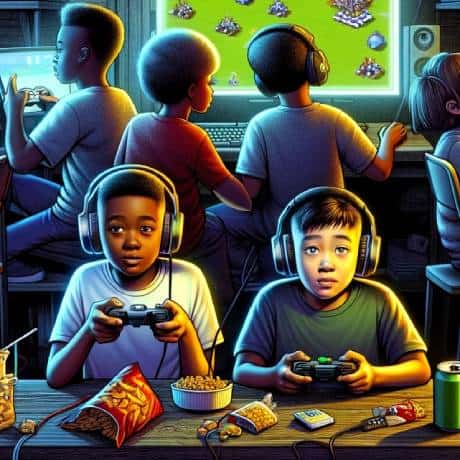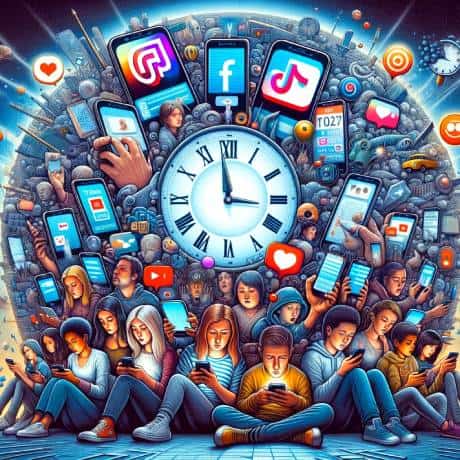Level up your mind, mood, and gaming performance through the transformative power of music.
🎵 Music isn’t just entertainment—it’s a powerful tool that can transform your gaming experience, boost your mental wellness, and enhance your performance. As gamers who seek to level up every aspect of life, understanding how to harness music’s potential can give you a significant advantage in both virtual worlds and reality.
🧠 Elevates Mood & Mental State
Music possesses a remarkable power to elevate our mood and mental state. If you find yourself feeling down after a tough gaming session, turning on some upbeat music can work wonders. The vibrant rhythms and positive melodies have an almost magical ability to encourage smiles and lighten hearts.
Recent research from 2024 reveals that music engagement not only shapes our personal identity but plays a crucial role in mood regulation. A 2022 meta-analysis found substantial benefits of music therapy on stress-related outcomes, confirming what many gamers already experience intuitively.
Whether it’s a catchy pop song, an invigorating piece of electronic music, or any tune that radiates positivity, the right soundtrack can transform a frustrating gaming moment into one of renewed energy and focus. This mood-lifting effect extends beyond gaming, enhancing your overall quality of life and mental resilience.
🚀 Boosts Energy & Performance
Need an energy kick to power through that challenging raid or competitive match? Fast-paced, energetic music can be just the thing. It’s like a natural energy drink for your soul!
Key Benefits Music Brings to Gamers:
- Reduces stress and anxiety – Essential for maintaining focus during intense gameplay
- Improves focus and concentration – Helps you stay in the zone when it matters most
- Enhances cognitive performance – Recent 2024 research shows video game players who listen to appropriate music demonstrate cognitive abilities similar to people 5-13 years younger
- Boosts reaction time – The right beat can synchronize with your gameplay rhythm
- Provides emotional regulation – Helps process both victories and defeats
🎻 Music for Every Gaming Moment
Below is a selection of gaming scenarios paired with recommended musical genres, chosen to optimize each experience:
💼 Strategic & Focus Gaming
The optimal choice of music for strategic gaming (like MOBAs, RTS, or turn-based games) is highly individualized, influenced by personal preferences and the specific nature of the game. Generally, genres such as classical, lo-fi, ambient, and instrumental soundtracks are favored for their ability to create a concentrated atmosphere without overwhelming distraction.
For example, while engaging in complex strategy games, some may prefer the mathematical patterns of classical music to enhance decision-making. Conversely, casual building games might align better with the familiarity of ambient soundscapes. This versatility underscores the importance of selecting music that not only complements the game but also enhances productivity and focus.
📖 Learning New Games
When learning complicated game mechanics or studying strategy guides, ambient music or the sounds of nature can significantly enhance your concentration and improve your ability to absorb information.
This connection to calm, focused music is deeply rooted in our psychology – the relaxing tones put you into a state of flow that’s ideal for learning. By integrating natural sounds or ambient music into your learning sessions, you may discover an elevated level of concentration and an enriched understanding of complex game systems.
🌙 Post-Gaming Relaxation
After intense gaming sessions, your mind needs time to decompress. Jazz, soft rock, and acoustic tunes possess a unique ability to calm the mind and provide solace. The smooth melodies and gentle rhythms create a tranquil auditory sanctuary, ideal for unwinding and rejuvenating.
Whether it’s the soulful improvisations of jazz, the mellow vibes of soft rock, or the pure simplicity of acoustic music, each genre offers a soothing escape, helping to ease the tension that builds up during competitive play. Integrating these musical styles into your post-gaming routine can serve as a therapeutic tool, facilitating a transition back to a state of calm.
🎉 Pre-Gaming Motivation
Before diving into a high-stakes match or attempting a difficult challenge, pop, dance, and upbeat world music are powerful catalysts for building the right mindset. The vibrant rhythms and catchy melodies characteristic of these genres are designed to elevate spirits and inspire confidence.
Whether it’s the universal appeal of pop, the rhythmic pulse of dance music, or the diverse sounds of upbeat world music, each genre possesses the unique ability to transform your mood and get you ready for peak performance. These musical styles can serve as an effective strategy for boosting morale and motivation before important gaming sessions.
🚶🏃🏋️♂️ Action-Packed Gaming
For fast-paced action games, shooters, and racing titles, the right music can dramatically enhance your experience and performance. Fast-paced genres such as electronic dance music (EDM), hip-hop, and high-energy rock are particularly effective at matching the intensity of action gameplay.
The tempo and beat of these music styles can synchronize with your movements and reactions, helping to regulate your pace and optimize your performance. The 2024 Western University study found that players who regularly combined gaming with appropriate music showed significantly improved cognitive function.
For those engaging in rhythm-based games or titles requiring precise timing, music with a steady beat can be a game-changer, making each action feel more fluid and synchronized. Incorporating motivational or uplifting tracks can further enhance the gaming experience, offering mental encouragement in addition to the performance benefits.
🏋️♀️ Powering Physical Performance: Music for Exercise
Just as the right soundtrack enhances your gaming performance, strategic music choices can dramatically improve your physical workouts. Whether you’re hitting the gym, going for a run, or practicing yoga, the perfect playlist can be the difference between an average session and a personal best.
🏃 Cardio & Running
Research has consistently shown that music can help runners maintain pace, increase endurance, and even reduce perceived exertion. The ideal music for running typically falls between 120-140 BPM (beats per minute) to match your stride cadence.
Recommended Genres:
- Upbeat electronic dance music (EDM)
- High-energy pop hits
- Running-specific playlists (many streaming services offer these)
- Drum and bass for intense interval training
For optimal running performance, choose music with consistent beats, motivational lyrics, and a tempo that matches your target pace. Many serious runners create progressive playlists that start slower for warm-ups and gradually increase in tempo as the workout intensifies.
🏋️ Strength Training & HIIT
When lifting weights or doing high-intensity interval training, your music needs differ from cardio workouts. Research from the Journal of Strength and Conditioning Research shows that music with strong beats and aggressive tones can significantly increase power output during resistance training.
Recommended Genres:
- Heavy metal and hard rock
- Trap and aggressive hip-hop
- Intense electronic music
- Motivational workout mixes
The ideal strength training tracks feature powerful drops, aggressive rhythms, and motivational lyrics or samples. Many competitive powerlifters and bodybuilders use specific “PR songs” (personal record songs) reserved exclusively for maximum effort attempts.
🧘♀️ Yoga & Flexibility Training
For mindful movement practices like yoga, pilates, or flexibility training, music serves a different purpose—creating a mental space conducive to mind-body connection rather than raw energy output.
Recommended Genres:
- Ambient and atmospheric music
- Classical Indian ragas (traditional yoga music)
- Lo-fi beats at slower tempos
- Nature sounds combined with gentle instrumentation
The ideal BPM range for yoga practices is typically much lower (60-90 BPM), creating space for breath-synchronized movement without rushing. Many yoga practitioners find that music with natural elements helps deepen their practice and maintain focus.
🚴 Cycling & Rhythm-Based Exercise
Cycling, rowing, and other rhythm-based exercises benefit tremendously from synchronizing movement with music beats. Research shows that matching pedal cadence to music tempo can improve efficiency and power output while reducing perceived exertion.
Recommended Genres:
- House music (125-130 BPM is ideal for cycling)
- Synthwave and retrowave
- Upbeat indie rock
- Specially designed cycling mixes
Many indoor cycling apps and classes now feature music specifically designed to match target cadences for different training zones, effectively gamifying the workout experience through musical cues.
Creating the Ultimate Workout Playlist
The most effective workout playlists follow a strategic structure:
- Warm-up tracks (2-3 songs): Moderate tempo to prepare the body
- Progressive intensity (3-4 songs): Gradually increasing energy and BPM
- Peak performance tracks (4-5 songs): Your highest energy selections for maximum effort
- Cool-down selections (2-3 songs): Decreasing tempo for recovery
This approach mirrors well-designed gaming soundtracks that dynamically adapt to gameplay intensity, creating an optimal auditory environment for physical performance.
🚫 Music to Avoid While Gaming
While music can be a powerful tool for enhancing gaming performance, certain types may inadvertently harm your experience. It’s important to be conscious of music’s alignment with your current gameplay goals.
Sad music, while potentially a release for some, can amplify feelings of frustration after defeats. Similarly, overly aggressive music might heighten tension during already stressful gameplay moments. Music with distracting lyrics can pull your attention away from important in-game audio cues.
The key is to select music that harmonizes with and enhances your gaming objectives. Being mindful of your emotional state when choosing your playlist ensures that music remains a source of advantage rather than a potential distraction.
🎼 Building Your Gaming Soundtrack
Everyone’s taste is different. Create playlists for different gaming scenarios:
- Focus Playlist – For strategic gameplay requiring concentration
- Hype Playlist – For competitive matches where energy is key
- Learning Playlist – Calm tracks for when you’re mastering new mechanics
- Cooldown Playlist – For post-gaming relaxation and recovery
Experimenting with different music for different games helps you understand what works best for your particular play style and mental state. Many streaming services allow you to create and save these themed playlists for quick access.
💼 Leveling Up: Music for Work & Productivity
The same principles that make music powerful for gaming can also transform your work life and real-world productivity. Just as you strategically choose soundtracks for different game types, curating music for various work tasks can significantly boost your performance in your career and daily responsibilities.
Coding & Technical Work
For programmers, developers, and technical professionals, instrumental electronic music like synthwave or lo-fi beats can create a flow state similar to what gamers experience during intense focus sessions. The rhythmic patterns help maintain concentration without the distraction of lyrics.
Research from the Max Planck Institute shows that music with mathematical structures (like Bach or electronic compositions) can enhance problem-solving abilities and pattern recognition—crucial skills for both coding and strategic gaming.
Creative Tasks & Brainstorming
When tackling creative challenges or brainstorming sessions, upbeat music with positive associations increases dopamine production, which fuels creative thinking. Jazz, world music, or instrumental film scores can stimulate different neural pathways and help you make unexpected connections.
Administrative Tasks & Data Entry
For repetitive tasks that require accuracy but not deep thought, energetic music with a steady beat can increase your pace and maintain engagement. This is why many office workers use playlists to power through email management or data entry—the rhythm creates a productive tempo for work.
Meeting Preparation & Presentations
Before important meetings or presentations, use the same pre-game motivation techniques that esports professionals employ. A short session with energizing, confidence-boosting music can optimize your mindset and reduce performance anxiety.
Learning & Professional Development
When studying new work-related skills or absorbing complex information, the same ambient soundscapes that help you learn game mechanics can enhance retention of professional knowledge. Classical music, particularly baroque compositions (60-70 BPM), synchronizes with optimal brain wave patterns for learning.
Work-Life Integration
The strategic use of music throughout your day creates powerful transitions between activities. Just as a cooldown playlist helps you decompress after gaming, a carefully selected “commute playlist” can help you mentally shift between work mode and home life, preventing burnout and promoting work-life balance.
By applying gaming-inspired music strategies to your work life, you’re essentially “gamifying” productivity—using the same motivational and cognitive enhancement techniques to level up in your career that you use to excel in virtual worlds.
🧘♀️ Music as Gaming Therapy
Music therapy is now a recognized field dedicated to using music for therapeutic purposes. For gamers who experience frustration, anxiety, or burnout, intentional music use can be remarkably effective.
A 2024 study in BMC Psychology found that music therapy has significant positive effects on psychological wellbeing, particularly when combined with health awareness. For gamers, this means conscious integration of music into your routine can help process gaming-related emotions, manage competitive stress, and maintain a healthy relationship with gaming.
👂 Protecting Your Hearing: The Gamer’s Guide
According to the World Health Organization, billions of individuals are at risk for hearing loss due to excessive noise exposure from personal audio devices such as headphones and earbuds—an essential concern for gamers who often use these devices for hours daily.
Safe Listening Guidelines for Gamers:
- Follow the 60/60 rule: Listen at no more than 60% volume for no more than 60 minutes at a time
- WHO recommendations: Keep volume below 85dB for adults (approximately 60% of maximum volume on most devices) and below 75dB for children
- Take regular breaks: Give your ears a 5-minute rest every hour of gaming with headphones
- Invest in quality headphones: Good headphones with proper fit reduce the need to raise volume
- Use volume-limiting features: Most gaming platforms and devices have settings to cap maximum volume
- Consider open-back headphones: These allow for better air circulation and generally require lower volume settings
Remember that hearing damage is permanent but completely preventable. If you experience ringing in your ears after gaming sessions, that’s a warning sign that your volume is too high.
Frequently Asked Questions
How does music affect gaming performance?
Research shows that appropriate music can improve reaction time, focus, and cognitive performance while gaming. A 2024 study from Western University found that gamers who regularly listened to music while playing demonstrated cognitive abilities like people significantly younger than their actual age. However, the effect varies by game type—strategy games may benefit from different music than action games.
Can music help with gaming-related stress?
Yes! Music has been scientifically proven to reduce stress hormones and help regulate emotions. For gamers experiencing frustration or anxiety during challenging gameplay, taking a short break with calming music can reset your mental state and improve subsequent performance.
What’s the best music genre for competitive gaming?
This varies by individual preference, but research suggests that instrumental music with a consistent beat and without distracting lyrics works best for most competitive scenarios. Many esports professionals use electronic music or specially designed gaming soundtracks that enhance focus without interfering with game audio cues.
How can I prevent hearing damage while gaming with headphones?
Follow WHO guidelines by keeping volume below 85dB (around 60% of maximum on most devices), take regular breaks, and invest in quality headphones that don’t require high volume for clarity. Many gaming platforms now include volume-limiting features specifically designed to protect hearing health.
Can music help me learn new games faster?
Yes! Studies show that ambient or classical music can enhance information retention and learning. When tackling a new game with complex mechanics, background music at a moderate volume can create an optimal state for absorbing and retaining information.
How can I apply gaming music strategies to improve my work performance?
The same principles that enhance gaming performance can be applied to work tasks. Use instrumental music for complex problem-solving, energetic tracks for repetitive tasks, and calming compositions for high-stress situations. Create task-specific playlists just as you would for different gaming scenarios, and use music transitions to mentally shift between different types of work.
Does music affect different personality types differently?
Yes. Research shows that introverts typically perform better with less stimulating music at lower volumes, while extroverts often benefit from more energetic music at higher volumes (while still maintaining safe levels). Understanding your personality type can help you customize your music selection for optimal results in both gaming and work.
Do headphones increase earwax buildup, and how should I manage this?
Yes, regular headphone and earbud use can potentially increase earwax (cerumen) production and impact the natural migration process that normally clears wax from your ears. Headphones, especially in-ear models, can push earwax deeper into the ear canal and create a warmer, moister environment that promotes wax production.
To manage this issue while maintaining your gaming and music experience:
- Clean your headphones regularly with alcohol wipes to prevent bacteria transfer
- Give your ears breaks from headphone use for at least 5-10 minutes every hour
- Never use cotton swabs (Q-tips) to clean your ears as they can push wax deeper
- Consider over-ear headphones instead of in-ear models when possible
- Use safe ear cleaning methods like warm showers to naturally soften wax
- See a healthcare professional if you experience symptoms of impacted earwax (muffled hearing, earache, tinnitus)
Some gamers benefit from occasional use of doctor-approved earwax softening drops if they’re prone to buildup, but avoid using these products if you have ear tubes, perforated eardrums, or ear infections.









 Snacks
Snacks Water
Water Eye Sight
Eye Sight Hearing
Hearing
































